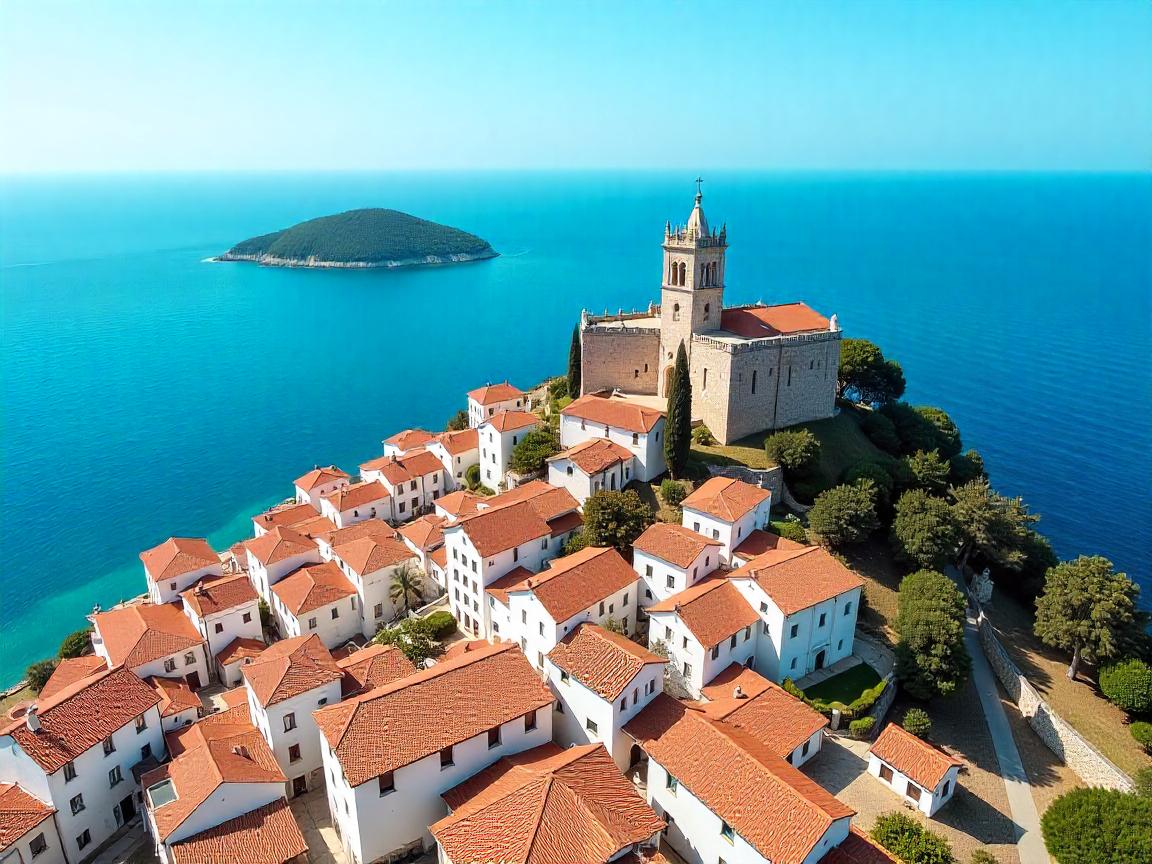<> Viral of Today <>
Home » TOURISM NEWS » Spain’s Unstoppable Tourism Boom Defies Protests as Millions Flock to Its Sun-Kissed Islands and Historic Cities Monday, June 2, 2025Spain is experiencing a powerful surge in tourism, attracting record numbers of visitors to its stunning coastal regions and cultural hotspots despite growing protests and community concerns. This influx reflects the country’s enduring appeal to travelers worldwide, who continue to choose Spain for its sun-drenched islands, rich heritage, and vibrant lifestyle, even as debates intensify over the social and environmental impact of mass tourism.British Tourists Flock to Spain Despite Rising Protests Over Overtourism and Housing CrisisWhile protests against tourism intensify across sun-soaked Spain, British travelers continue to flood holiday hotspots in record numbers. Despite growing local unrest and rising tensions fueled by concerns over housing affordability and environmental strain, recent data reveals that bookings to Spain’s famous Balearic Islands and other key destinations have surged dramatically, signaling that holidaymakers remain undeterred.A Surge in Holiday Bookings Amidst ProtestsSpanish activists campaigning against overtourism have been vocal about the pressures mass tourism places on local communities, yet figures from travel platform TravelgateX show that bookings have climbed by over 10% in just the past week alone. Even more striking, reservations specifically for the Balearic Islands — comprising Mallorca, Menorca, Ibiza, and Formentera — have jumped nearly 30% compared to the same period last year.This archipelago, renowned for its pristine beaches and vibrant nightlife, ranks as the third most popular Mediterranean destination within Spain, trailing only behind Andalusia and Catalonia, both of which hold 18% of overall holiday bookings. The Balearic Islands draw a diverse range of visitors, but more than half of holidaymakers, around 56%, plan stays between two and five nights, while 28% prefer a full week of relaxation. This trend underscores the enduring appeal of these islands as prime getaway spots, especially for British tourists who continue to favor Spain over other European locations.Protests Rooted in Housing and Environmental ConcernsThe demonstrations sweeping across Spain are not just a reaction to the influx of visitors but also stem from broader socioeconomic issues affecting local populations. Many Spaniards blame the growing number of foreign tourists and expatriates for exacerbating a housing crisis that has seen rental prices and property costs skyrocket beyond what most natives can afford. These issues have triggered widespread discontent, with protestors demanding action to protect residents’ rights and curb the negative impacts of tourism-driven inflation.Beyond the housing crunch, environmental advocates and community leaders argue that the rapid growth in visitor numbers is damaging fragile ecosystems and overwhelming local infrastructure. The strain on water supplies, waste management systems, and public services has become increasingly evident in many popular tourist areas, prompting calls for more sustainable and responsible tourism models.Tourists Remain Unfazed by UnrestDespite the mounting protests and warnings from local groups, tourist demand shows no sign of slowing. Recent booking data reveals that over 60% of visitors to Spain are couples seeking romantic escapes, while families represent about 9.3%, groups account for 16.4%, and solo travelers make up the remaining 12.8%. This diverse mix illustrates that Spain continues to attract a wide array of holidaymakers, each drawn by the country’s cultural richness, natural beauty, and warm climate.British tourists lead the pack, making up nearly a third (32.8%) of all recent bookings, followed closely by Spanish nationals at 28.7%. German visitors, known for their habit of reserving accommodations early, contribute 10.84% of bookings. These figures confirm that, despite protests, Spain’s allure remains strong across multiple European markets.The Next Wave of Coordinated ProtestsWhile the tourism industry enjoys a boom, opposition groups remain steadfast. A new round of demonstrations is planned for June 15, with more than 60 anti-mass tourism organizations confirming their participation. The protests are set to unfold simultaneously across Spain’s most-visited destinations, including the Balearic Islands, Barcelona, the Canary Islands, Ibiza, and Alicante, and will even extend to other European cities such as Venice.These protests will carry the powerful slogan: “For the right to a decent life, stop touristification.” Spearheaded by the campaign group Menys Turisme, Mes Vida — which translates to “less tourism, more life” — the movement seeks to raise awareness about the social and environmental costs of unchecked tourism growth and advocate for policies that balance economic benefits with residents’ wellbeing.Manifesto and Public Mobilization in MallorcaIn a symbolic event held recently at Palma’s Parc de la Mar in Mallorca, representatives of the campaign read aloud a manifesto outlining their demands and objectives. The gathering served both as a rallying call for the upcoming protests and a reminder of the widespread frustration felt by many locals who believe that tourism, in its current form, threatens their quality of life.The manifesto highlights the urgent need to rethink tourism strategies in Spain, emphasizing the importance of prioritizing sustainable practices, protecting affordable housing, and ensuring that tourism development does not come at the expense of local communities.Spain’s tourism is booming, drawing record crowds to its beautiful coasts and cities despite rising protests. Visitors remain captivated by its unique charm, fueling ongoing debates about the future of travel in the country.The Challenge Ahead for Spain’s Tourism IndustrySpain’s tourism sector has long been a vital engine of the country’s economy, providing millions of jobs and contributing significantly to GDP. However, the growing backlash from local residents underscores the challenges of managing tourism in a way that benefits both visitors and host communities.As protests continue and debates intensify, stakeholders — including government authorities, tourism businesses, and civil society groups — face increasing pressure to find innovative solutions. These may include limiting visitor numbers in sensitive areas, investing in infrastructure upgrades, promoting off-season travel, and developing policies to protect affordable housing.For British holidaymakers and other international visitors, Spain remains a top travel destination, celebrated for its sunny weather, rich culture, and diverse landscapes. Yet, the ongoing unrest serves as a reminder that the future of tourism in Spain depends on striking a balance between welcoming tourists and respecting the needs of local populations.
This information will surprise you!
See also
- Read until the end to discover everything.
- Important information you need to know.
- Interesting facts and helpful tips.
Conclusion
Did you enjoy the news? Keep following us daily!

